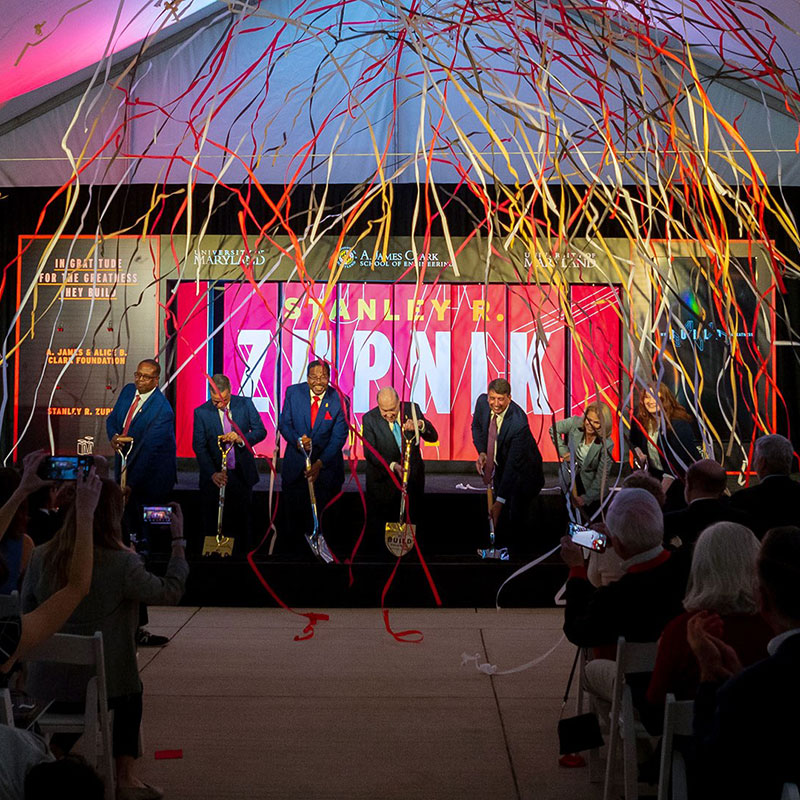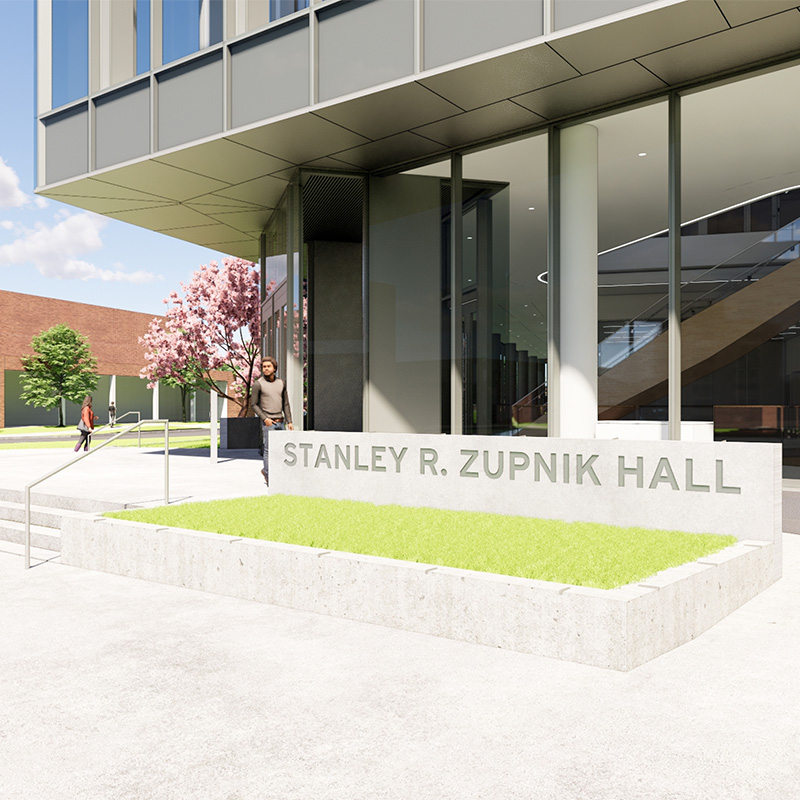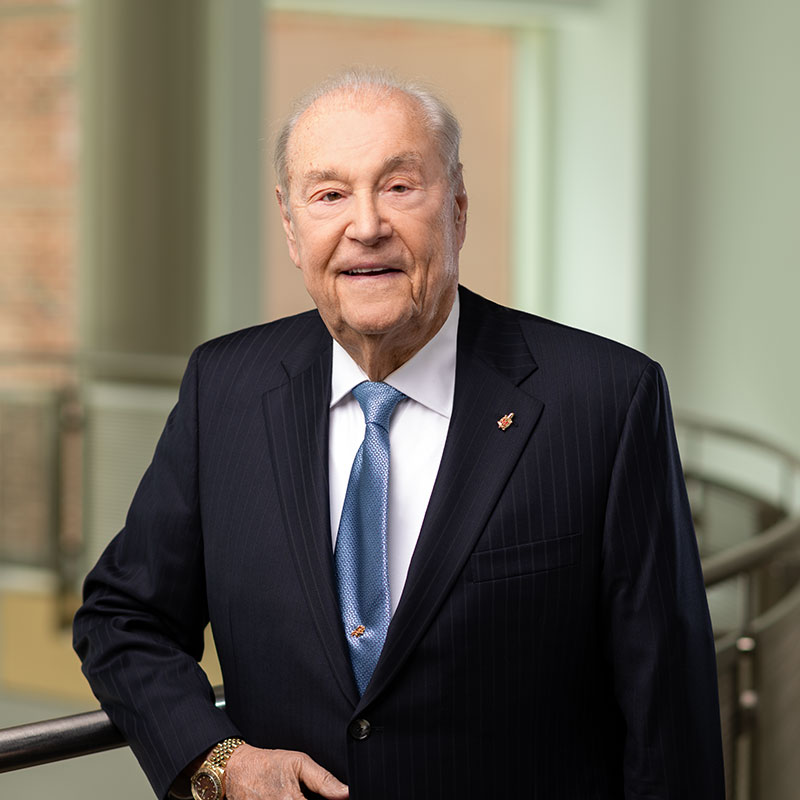| Vision & Mission | About the Building |
Designed to facilitate idea sharing and big thinking, Stanley R. Zupnik Hall will be located at the corners of Paint Branch and Stadium Drives in the center of the Maryland Engineering complex. When completed in 2026, the building will be a nexus for multiple engineering disciplines and university institutes and provide flex space and a new home for identity-based student organizations.
Give
Founding Donors
We are deeply grateful to every donor whose generosity helped bring the vision of Stanley R. Zupnik Hall to life—a place where faculty and students will build a legacy of innovation and excellence to tackle the world's most pressing challenges.
A. James & Alice B. Clark Foundation
Constellation Energy
Captain Thomas C. Crane USN, RET ’62
Paul ’76 and Ellen ’75 Gaske
Scott M. ’82, MBA ’86 and Carole S. MBA ’86 Greenhaus
Rattan L. Khosa M.S. ’71
Robert L. Peskin ’73
Stanley R. Zupnik ’59
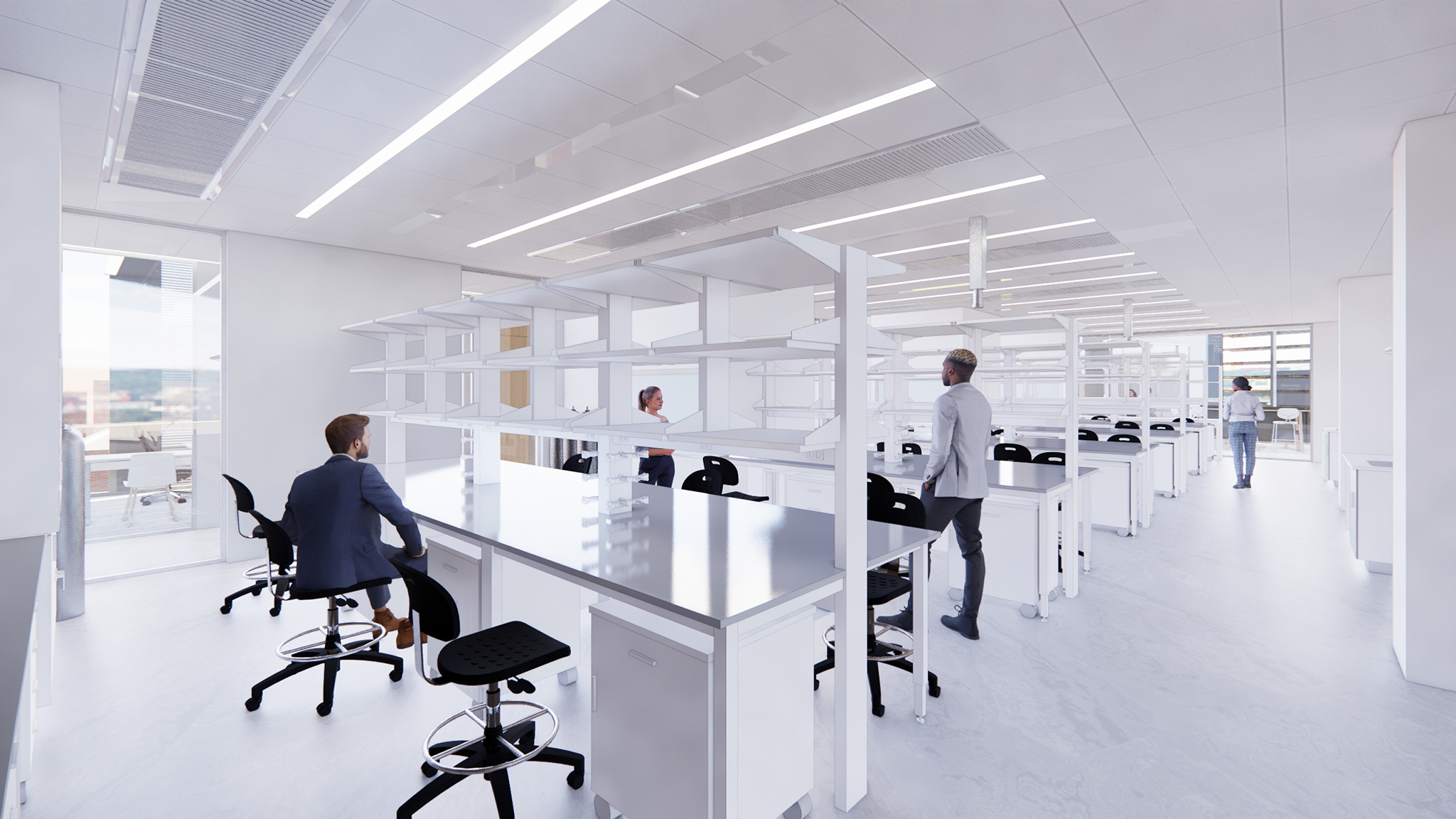
Addressing Grand Challenges
Stanley R. Zupnik Hall is symbolic of the Clark School’s exciting potential—bringing together world-class students, faculty and staff across multiple engineering disciplines, cross-campus university institutes, and external partners to understand and address the world’s most pressing challenges. Research occurring within its walls will become a significant stimulus for economic growth for the State of Maryland, the region, and the nation. Innovative solutions have been hallmarks of the Clark School throughout its history, from the creation of the world’s highest energy density thin-film battery to suture-free wound repair that can revolutionize surgical methods. Zupnik Hall will further that tradition as we educate future engineering leaders and pursue pioneering breakthroughs in quantum technology, infrastructure, transportation, and environmental safety.
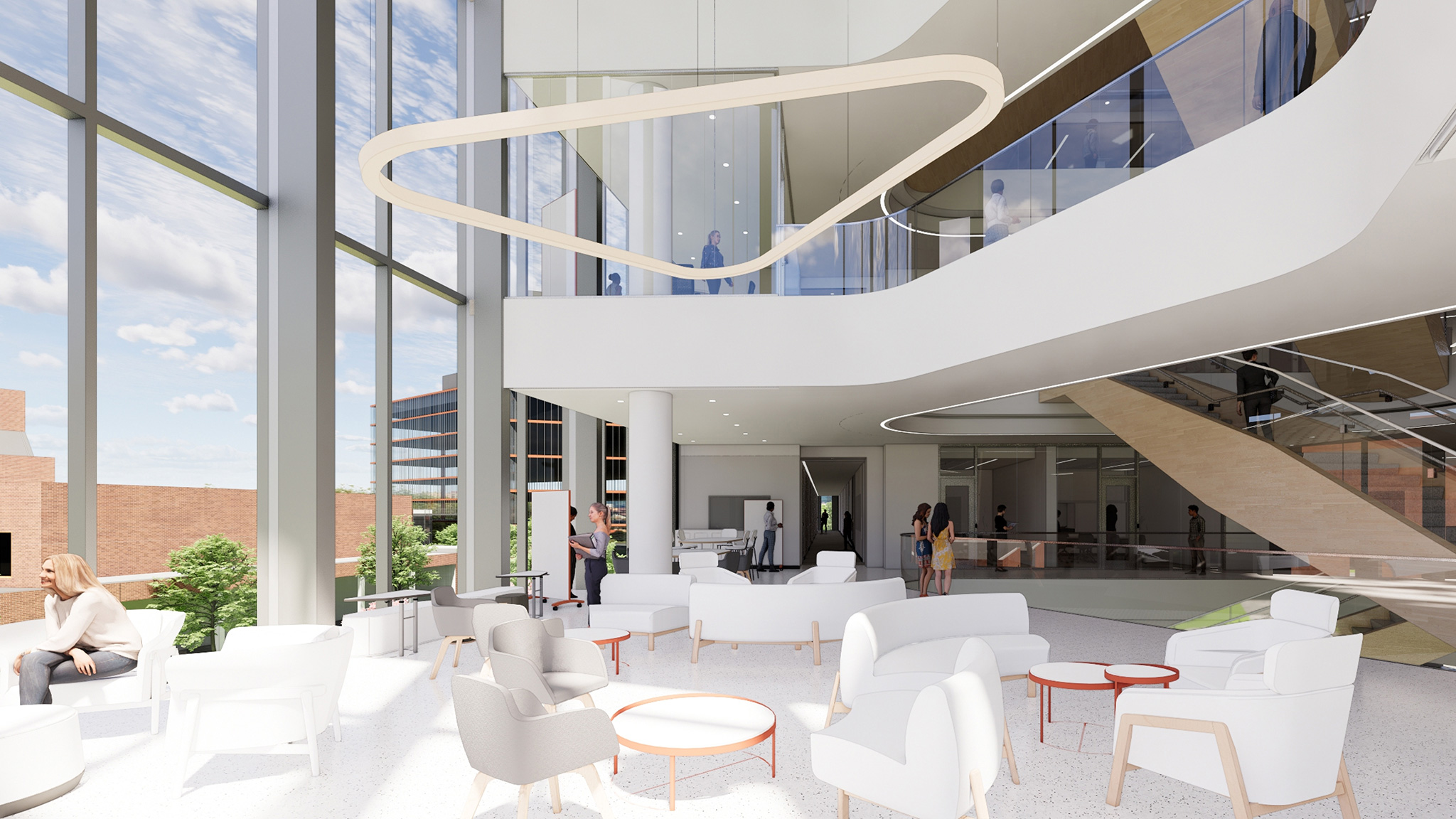
A World of Opportunity
Resources available in Zupnik Hall will help the Clark School and the university achieve several important goals:
- Boost student and faculty recruitment.
- Strengthen the curriculum.
- Continue to meet the strong demand for engineers.
- Increase research funding.
- Support economic development.
- Build community ties.
“Because of the very nature of the types of problems we must solve in the future, we need faculty and students from many disciplines to come together, including professionals outside engineering, to create the best possible solutions for society.”
- Samuel Graham, Jr.
Dean and Nariman Farvardin Professor, A. James Clark School of Engineering
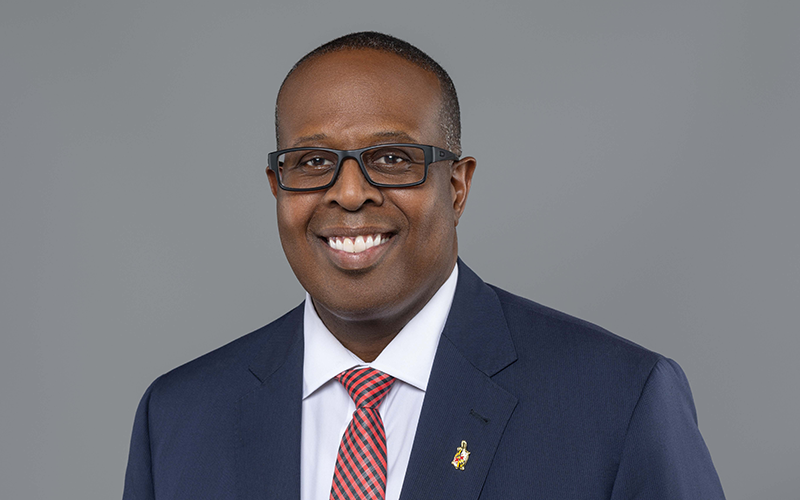
Vision & Mission
Support Stanley R. Zupnik Hall
Maryland Engineering develops leaders who come together, solve some of the world’s most pressing challenges, and translate their solutions to impact society. Achieving that ambition means creating an environment that’s ripe for innovation, collaboration, diversity, and inclusion—and that’s what Stanley R. Zupnik Hall, the University of Maryland’s new interdisciplinary engineering building, will do.
With investment from the State of Maryland and our founding donors Stanley R. Zupnik '59 and the A. James & Alice B. Clark Foundation, Zupnik Hall is on track for completion in 2026. However, we still need an additional $10M in private philanthropic investments to meet the estimated project cost of $214.5 million.
With your help, we can provide the learning and research facilities that best support future engineers.
Help Us Build Zupnik Hall
Your gift supports new construction of Zupnik Hall, and helps the Clark School of Engineering provide Maryland’s leading engineering education and develop outstanding engineers and ideas that change the world.
Give NowContact Us
Jennifer L. Schwartz
Assistant Dean for Advancement
A. James Clark School of Engineering, University of Maryland
301-405-0317
jschwar2@umd.edu
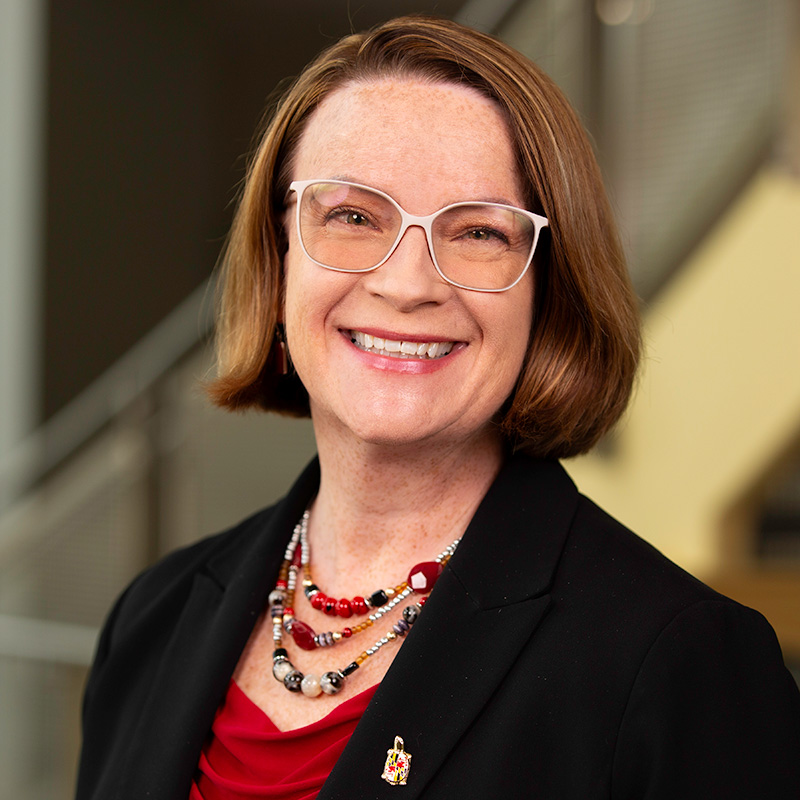
About the Building
Building Highlights
Zupnik Hall will be the new home to the Department of Civil and Environmental Engineering (CEE). Innovative CEE and interdisciplinary labs include a Connected Autonomous Vehicle lab, a BIM lab, an Intelligent Infrastructure lab, and others. The Quantum Technology Center’s labs will focus on Optics and will be home to one of the few quantum technology teaching labs in the country. The signature space in the building will be its Atrium, soaring six levels with glass-enclosed laboratories surrounding it.
Community Spaces to Inspire Collaboration and Inclusion
- Atrium
- Plaza
- Identity-Based Student Organizations Suite
- Student Lounges
- Conference, Meeting, and Huddle Rooms
- Faculty Offices
New Home for Civil and Environmental Engineering
The department will occupy more than 37,000 square feet of Zupnik Hall:
- Civil Engineering: entire 4th floor
- Environmental Engineering: entire 3rd floor
- Significant spaces and laboratories on the basement level, ground floor, and 2nd floor
- Rooftop terrace and adjoining lounge and meeting spaces
Cutting-Edge Labs to Address Grand Challenges
- Connected Autonomous Vehicles Lab
- Building Information Modeling (BIM) Lab
- Intelligent Infrastructure Lab
- Mechanical Engineering Research Neighborhoods
- Flexible Research Neighborhood
- City@UMD
- Quantum Technology Suite
Top
